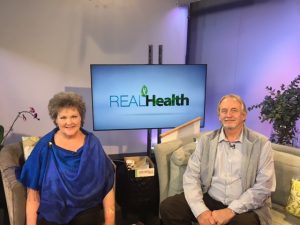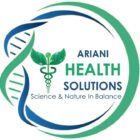10-16 October 2016: Dr Arien on Real Health (DStv 176)
 Dates: 10 – 16 October 2016
Dates: 10 – 16 October 2016
Times: Mon 23:00 | Tue 10:00 | Wed 14:00 | Fri 18:00 | Sat 10.00 | Sun 8.30
Topic: Herbal Remedies
Show: Real Health
Channel: The Home Channel (DStv 176)
More info:
A little background information to whet your appetite: Help from nature
Herbs are fresh plants (root, flowers, seeds, leaves or all of the above!) with healing or medicinal (botanical medicine), aromatic and culinary properties. Most herbs and spices (dried herbs) have all three characteristics and these can be used freely. When you add herbs and spices to your food, you not only improve the taste and aroma of the dish, you and your family are benefitting from the healing properties of the herbs. When you put a bunch of fresh lavender or roses in your home, you brighten your space, but also enhance your mood with the specific properties of these flowers.
Garlic, ginger, turmeric, thyme, rosemary, basil and sage are herbs with a wealth of healing properties – they also improve the taste, flavour and texture of most foods. Grow your own herbs and use them generously in food or take them as a tea.
Essential oils of lavender, camomile, orange blossom and rose geranium can be added to a bath to relieve stress and anxiety. These herbs can also be taken as a tea, as well as hibiscus flowers, sage and rosehip.
Echinacea, garlic, nasturtium leaves, camomile, sage and thyme are natural antibiotics which also support the immune system.
Only a few general examples are mentioned here. More herbs are discussed in my book (also available as eBook) Health and Happiness and on my website (www.DrArien.co.za), where specific herbs are recommended to support different systems of the body.
Herbs with medicinal properties specifically, can improve our health and wellbeing, while restoring physiological function to the systems of the body. However, although herbs are natural, the ones with mostly medicinal value, must be used circumspectly, and some herbs are not always safe to take together with prescription medicine. An example is St John’s Wort, excellent for mild to moderate depression, but cannot be taken together with prescription antidepressants, because the last then become potentially more harmful. Ginkgo biloba, on the other hand, great for mild depression, high blood pressure, improved concentration and memory, can be used together with a prescription antidepressant, and I would then prescribe this to patients, while I support them throughout the process of gradually tapering their prescription antidepressants should they wish to do so.
The increased interest in the use of medicinal herbs does not mean that we always understand exactly how they work. Plants are complex creations and forces of nature, where most active ingredients haven’t even been identified, and understandably, these compounds work together synergistically inside the plant. A herbal remedy therefore, is always much more complex than the use of single active ingredients.
Far too little research has been done on the interaction of the various prescription medicines with each other. The pharmaceutical industry is well regulated, but there is not enough information and research on the interaction of prescription drugs with each other let alone the interaction between prescription drugs and herbs. Herbs are combinations of many ingredients. Do not randomly mix herbs with over-the-counter and prescription medication. If you are uncertain, consult someone who is knowledgeable on herbal remedies as well as prescription and over-the-counter drugs. Having said that, most herbs are quite harmless and improve general health because they support our physiology naturally, gently and effectively.
